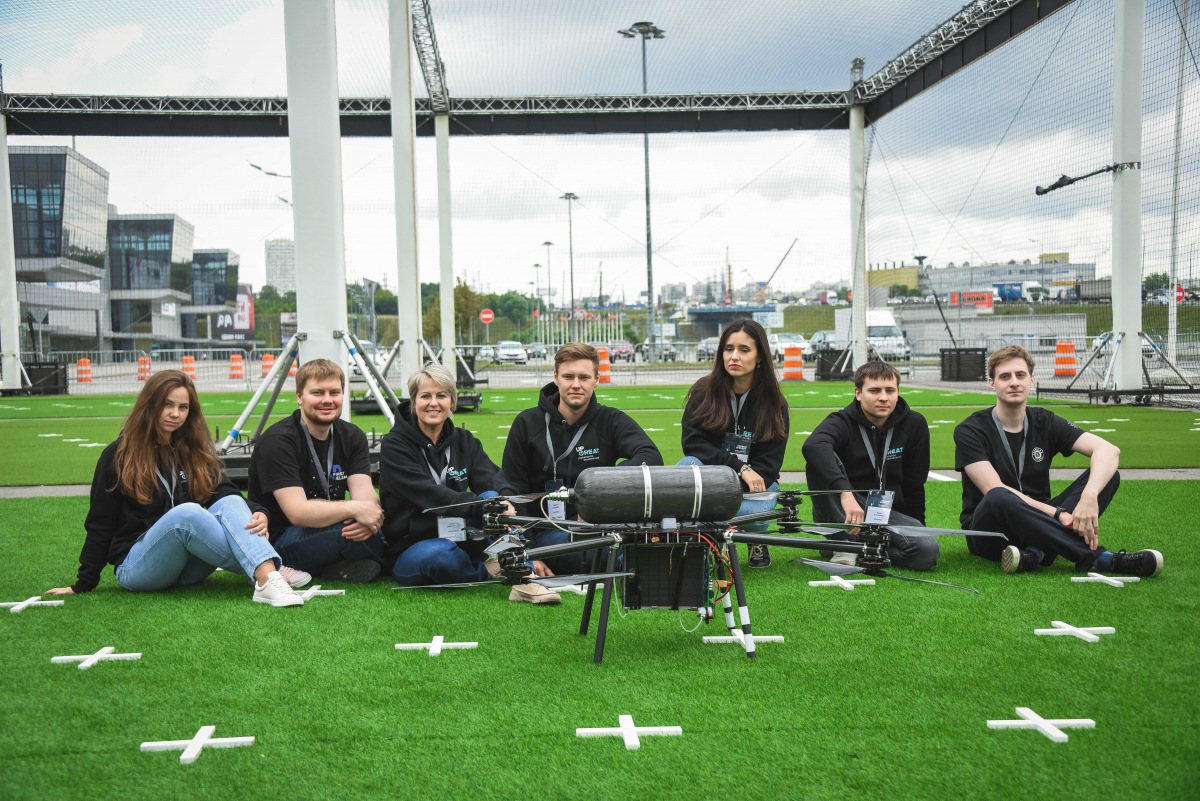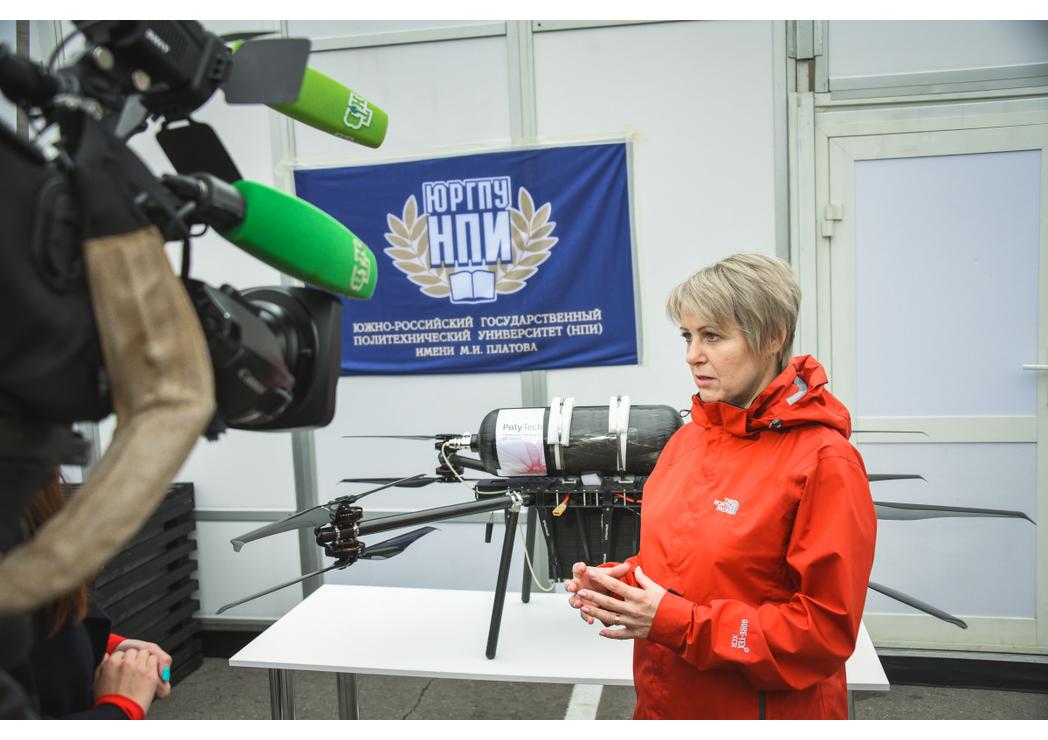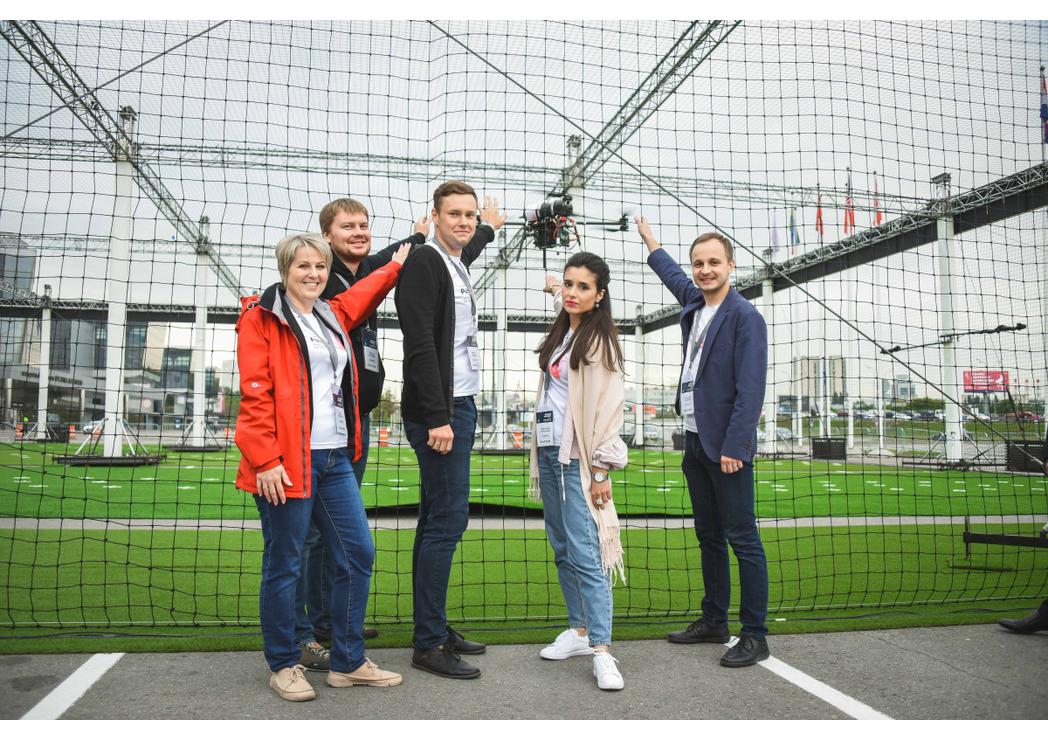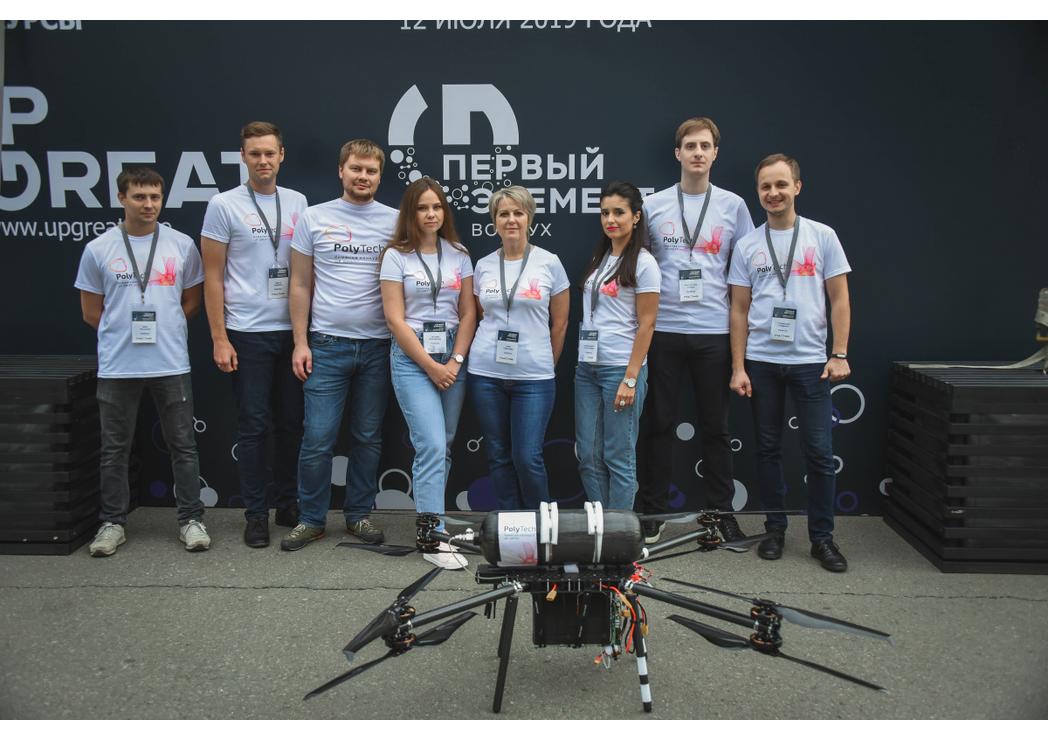On July 12, the first tests in Russia among developers of hydrogen fuel cell power plants, conducted as part of the Up Great "First Element" technology competition, were completed in Moscow. According to the results of the tests, the best result was shown by the Unmanned Helicopter Systems team and the Polytech team, which brought together specialists from the M.I. Platov YURSPU (NPI) and the InEnergy company. The competition is held by the Russian Venture Company, the Skolkovo Foundation and the Agency for Strategic Initiatives in order to implement the National Technology Initiative.
Needless to say, the Polytech team spent the day of July 12 and the days preceding it in a state of extreme excitement? The bench tests that took place on the eve of the final day demonstrated that it is our development that has every chance of winning the competition, which is based on the technological barrier in the field of hydrogen energy - overcoming the specific mass energy intensity of the installation of 700 W * h / kg, taking into account the specified characteristics of the average power (1.3 kW) and the maximum mass of the power plant less than 7 kilograms.
The final test flights took place in a specially equipped area on the territory of the Crocus Expo IEC. To win, it was necessary to stay in flight mode for at least three hours, demonstrating overcoming the technological barrier in terms of energy intensity.
According to the terms of the competition, the winner was determined by the maximum amount of energy. Polytech and BVS teams it was possible to achieve an energy intensity index of 529 Wh / kg, and their installations lasted in flight load mode for two and a half hours. This is an unprecedented indicator: modern battery-powered drones can stay in the air for an average of no more than half an hour.
Yes, the declared technological barrier was not overcome, but, according to the organizers of the NTI contest, "The first element. Air", they set the teams the most difficult task with a barrier above the world level. As a rule, experts emphasize, such technological peaks are not overcome in the first year of the competition.
- The teams fell just short of the barrier, but showed incredible progress, - said Dmitry Peskov, Special Representative of the President of the Russian Federation for Digital and Technological Development. - What does overcoming the technological barrier mean? This means that new markets are opening up, and drones are moving from the category of toys to the category of "workhorses" that can solve serious economic problems.
Alexander Povalko, CEO of the Russian Venture Company, is confident that the competition has achieved its main goal - it attracted the attention of the strongest teams who tried to overcome the technological barrier.
Kirill Kaem, Vice-president of the Skolkovo Foundation, shares the opinion of colleagues about the success of the competition, because there are examples when such competitions did not reveal the winner within their tasks, but stimulated the emergence and development of entire industries. The fact that the finalists were just a step away from solving the competitive task, Kirill Kayom is convinced, opens up significant opportunities for the development of hydrogen energy in general and for the use of hydrogen engines in the segment of aircraft in particular.
Recall that the initiators of the creation of the Polytech team were scientists and engineers of our university, who carry out serious scientific and technological developments, including for the defense industry of the country. The team also included specialists from Inenergy LLC (Moscow), who have extensive experience in the field of fuel cell technologies.
The expert team of the competition immediately drew attention to the unique competitive advantages of the power plant (EC) created by Polytech: the platinum-carbon catalyst is produced using a unique technology developed and patented by the team members, a special design and manufacturing technology of ultralight bipolar plates has been developed, which provides a significant reduction in the mass of the EC, an EC control system based on microelectronics of the latest generation has been developed, a unique ultralight hydrogen reducer has been developed, The implementation plan of the EC creation project is based on modern engineering approaches and best practices of life cycle management of innovative products (PLM).
The members of the Polytech team are confident that despite the technological barrier that has not yet been conquered, they have managed to overcome a serious professional bar. Our scientists have been developing components for such power plants for many years, but the installation itself was done for the first time. This work has become a new qualitative step in the transition from component to installation.
- The advantages of our team "grow" from the features and advantages of our university - its polytechnic, - says the leader of the Polytech team, Professor Nina Vladimirovna Smirnova. - Wonderful scientific schools of electrochemistry, electromechanics and hydropneumoautomatics work within the walls of the YURSPU (NPI). It is at the junction of these three sciences that the fuel cells we have developed are born. During the time of participation in the contest, we managed to do incredibly much! The problems that we had to solve are being dealt with by serious firms, our respected competitors - representatives of the Institute of Civil Aviation (the NaukaSoft team) and Unmanned Helicopter Systems, and such developments are their direct specialty. And we can be called a team of enthusiasts. Some of our inexperience in this direction has given rise to many new interesting technical solutions. We got the installation at the best Russian level. This is our unconditional victory!
We share the joy of our scientists about the results of the competition. Novocherkassk polytechnics withstood this difficult competition of minds, knowledge, scientific talents and creative insights with honor and became winners. Polytech team, we are proud of you!



